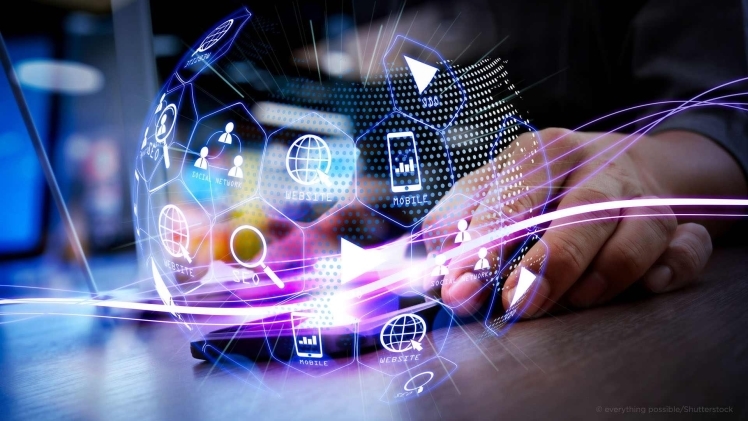The evolution of technology is a captivating narrative that has woven its way into the fabric of human history. From the rudimentary tools of ancient civilizations to the complex networked systems of the modern era, the tech odyssey has reshaped the way we live, work, and connect. Let’s embark on a journey through the annals of technological progress, dissecting its past, present, and the uncharted territories that lie ahead.
Table of Contents
The Birth of the Digital Age: From Mainframes to Microchips
The genesis of the digital age can be traced back to the mid-20th century when the invention of the transistor paved the way for a paradigm shift in computing. The era of mainframe computers gave rise to the concept of centralized data processing, marking the beginning of the digital revolution. As microchips emerged, the size of computers diminished, leading to the birth of personal computing in the 1970s.
The advent of microprocessors, typified by Intel’s 4004, marked a pivotal moment, laying the groundwork for the democratization of computing power. The birth of personal computers like the Apple II and IBM PC catalyzed a technological renaissance, bringing computing capabilities to individuals and small businesses.
The Internet Revolution: Connecting the World
The late 20th century witnessed a transformative leap with the advent of the internet. Initially conceived as a military communication tool, the internet rapidly evolved into a global network that transcended geographical boundaries. Tim Berners-Lee’s invention of the World Wide Web in 1989 ushered in a new era of interconnectedness, information sharing, and digital communication.
The internet became the backbone of technological progress, enabling the creation of websites, online commerce, and social media platforms. The digital landscape transformed as the internet became an integral part of daily life, reshaping how we access information, communicate, and interact with the world.
Mobile Revolution: The Power in Your Palm
The 21st century witnessed the proliferation of smartphones, marking another paradigm shift in technology. The integration of communication, computing power, and connectivity into handheld devices revolutionized the way we engage with information and each other. Apple’s introduction of the iPhone in 2007 paved the way for a mobile revolution that continues to reshape industries and societal norms.
Smartphones are not merely communication devices; they serve as gateways to a myriad of applications, services, and experiences. The app ecosystem has flourished, offering solutions for productivity, entertainment, health, and more. The ubiquity of mobile technology has made the world more accessible, bringing information and services to the fingertips of billions.
Artificial Intelligence: The Rise of Machines with Minds
As we traverse the technological landscape, the ascent of artificial intelligence (AI) stands as a defining chapter. AI, encompassing machine learning, neural networks, and natural language processing, empowers machines to perform tasks that traditionally required human intelligence. From voice-activated assistants to predictive algorithms, AI has permeated various facets of our lives.
The implications of AI are vast, from enhancing efficiency in industries to revolutionizing healthcare diagnostics. However, ethical considerations and the potential impact on employment raise important questions about the responsible development and deployment of AI. Striking a balance between innovation and ethical considerations is paramount as AI continues to shape the technological future.
Cybersecurity: Fortifying the Digital Bastions
As technology advances, the importance of cybersecurity becomes increasingly pronounced. With the proliferation of online platforms, digital transactions, and interconnected systems, the threat landscape has expanded. Cybersecurity is not merely a technical concern; it is a fundamental aspect of safeguarding personal privacy, business integrity, and national security.
The rise of cyber threats, from ransomware attacks to data breaches, underscores the need for robust cybersecurity measures. Innovations in encryption, threat detection, and risk management are essential components of the ongoing battle against cyber adversaries. As technology evolves, so too must our strategies for protecting the digital realm.
Future Frontiers: Quantum Computing, Biotechnology, and Beyond
Peering into the future, the technological horizon holds promises of groundbreaking advancements. Quantum computing, with its potential to revolutionize computation capabilities, is on the brink of practical applications. Biotechnology is unlocking new frontiers in medicine, genetics, and sustainable agriculture, offering solutions to some of humanity’s most pressing challenges.
The intersection of technology with fields like nanotechnology, renewable energy, and space exploration opens vistas of innovation yet to be fully explored. As we stand on the cusp of a new era, ethical considerations, responsible development, and inclusive access to technology become pivotal in shaping a future that benefits all of humanity.
Conclusion: Navigating Tomorrow’s Techscape
In the grand tapestry of technological progress, each innovation is a thread weaving its way through the intricate patterns of human advancement. As we navigate the ever-expanding horizon of technology, the onus is on us to steer this journey responsibly. Balancing innovation with ethical considerations, embracing inclusivity, and fostering collaboration will be the compass guiding us through the uncharted territories of tomorrow’s techscape. The tech odyssey continues, and the possibilities are as limitless as the human imagination that propels it forward.

